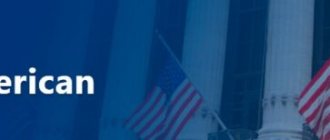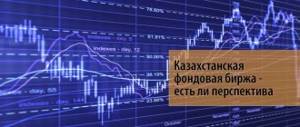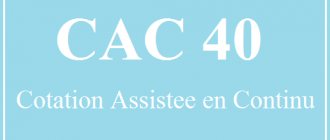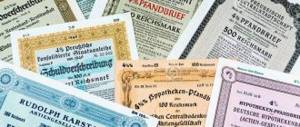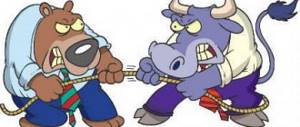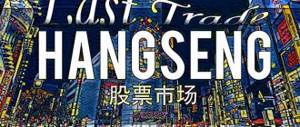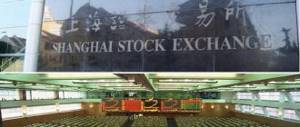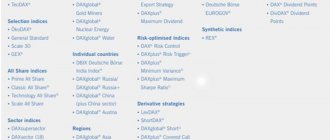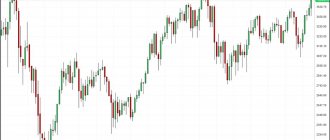History of the exchange
The first reports of securities trading in Hong Kong date back to the mid-19th century. But many years passed before the first official stock market appeared. Brokers had to wait until 1891. By that time, every European country already had its own site.
But now, the Commodity Association has opened in Hong Kong. In 1914 it was renamed the Hong Kong Stock Exchange. It lasted until the economic boom in 1971.
Then three more sites were born, but very soon they were merged with the mother site. After the merger, the work of the computer system was finally improved, which right now updates quotes every second.
In 1989, the exchange became similar to the platform it is today. The Hong Kong Securities Clearing Company Ltd holding was born, which provides the entire Asian market with unique financial products.
Hong Kong Stock Exchange
More recently, the Hong Kong Stock Exchange has risen to the forefront of the Asia-Pacific region, leaving direct competitors in Shanghai and Tokyo scratching their heads.
Hong Kong Stock Exchange - Origins
Known for its schools of oriental martial arts and long-lasting British influence, Hong Kong also introduced the world to another famous brainchild - the Hong Kong Stock Exchange . Having appeared at about the same time and for similar reasons (the rapid development of local industry) with their fellow countrymen from Shanghai, the southerners nevertheless followed a different scenario: since Hong Kong legally belonged to Great Britain, it followed the best English economic traditions. Formed in 1891, the Hong Kong Brokers' Association became a brand in 1914, renaming itself the now famous Hong Kong Stock Exchange . The newly-minted financial institution immediately began to grow rapidly (the city, which was under British protectorate, was already a developed economic center, being an important seaport), and also began purchasing local competitive exchanges, which was finally completed in 2000. In the 20th century, the prosperity of the exchange was hindered only by the Japanese, who captured Hong Kong during World War II, as well as by the economic crisis already in the late 90s.
From 1995 to 2009 The market capitalization of the Hong Kong Stock Exchange has increased more than 5 times. And in 2009 itself, in terms of the total amount of funds raised during the initial public offering (IPO), the Chinese stock institute unexpectedly took first place on the planet, with an indicator of $23.9 billion, which amounted to 24% of the global volume. In this competition, Hong Kongers beat such eminent rivals as NYSE Euronext, NASDAQ and fellow countrymen from Shanghai.
Despite its incorporation into the People's Republic of China, Hong Kong law is based on British legal principles. The main rule of the Hong Kong Stock Exchange is the equality of rights and obligations of shareholders and holders of depositary receipts. A foreign company wishing to be listed on the Hong Kong Stock Exchange must meet certain of its legal and financial requirements. Also, such a company is required to use the services of a consultant (referred to as a “sponsor”) who ensures the reliability and accuracy of information about the organization at the time of listing and has the appropriate license to conduct this activity.
Opening of the Hong Kong Stock Exchange for the Russian Federation
The first foreign, as well as Russian company, to place depositary receipts on the Hong Kong Stock Exchange was Rusal, controlled by Oleg Deripaska. In January 2010, having previously restructured the company's debts in the amount of $16.9 billion, Rusal put up about 11% of the company's shares for auction, receiving $2.2 billion for them. The successful implementation of this IPO attracted the attention of other Russian owners, such as Viktor Vekselberg, who is preparing to place shares of his own “Gold of Kamchatka” there. Pioneer Oleg Deripaska also liked working with Hong Kongers, who not only plans to repeat the successful IPO experience with his other brainchild, En+ Power, but also recently became a shareholder of the Hong Kong Commodity Exchange , taking possession of a 10% stake.
Hang Seng Index (HSI)
The main indicator of business activity and the state of the Hong Kong Stock Exchange is the Hang Seng Index (HSI index) (named after the bank that owns the analytical company that calculates the index). It is defined as the weighted average price of securities of the 40 largest companies on the Hong Kong Exchange, which together account for 65% of the total capitalization of issuers on this trading platform.
How to list on the stock exchange?
In April 2021, the listing rules on HKEX (the second name of the Hong Kong exchange) changed dramatically. Biotech companies are now bidding. In recent years, they have changed Hong Kong's economic landscape.
And now the HKSE accepts companies on the same principle as in the West. The issuer submits documents to the committee, and the committee responds to the candidate with a mountain of comments.
For several months the company has been correcting the shortcomings in order to meet the endless requirements of the exchange. Among them is absolute transparency of all financial affairs of the company. After about six months, the company is admitted to the securities market.
The basic requirements are:
- The company manager has not changed for a year.
- The company's profit exceeds HK$20 million.
Not all young companies can meet these requirements. There is a listing for them based on trade turnover, but for this the candidate needs to be super-successful: after all, $500 million in turnover is a lot!
Once a quarter, the exchange reviews the composition of companies that are registered on it. Most often, the issuer is simply excluded from one index and placed in another. But, in exceptional cases, the company may be thrown out of the site.
Listing commission may include:
- State representatives.
- Investment banks.
- Institutional investors with HK$5 billion in account.
What is Hong Kong Exchanges and Clearing Limited (HKEx)?
Hong Kong Exchanges and Clearing Limited (HKEx) is a publicly traded holding company and is one of the largest market operators in the world. Its subsidiaries include the Hong Kong Stock Exchange and the Hong Kong Futures Exchange. HKEx also operates four clearing houses in Hong Kong and the London Metal Exchange (LME), making it an important institution in global financial markets.
Key points
- Hong Kong Exchanges and Clearing Limited (HKEx) is a publicly traded holding company comprising some of the largest market institutions in the world.
- HKEx operates the Hong Kong Stock Exchange, the Hong Kong Futures Exchange, the London Metal Exchange and four clearing houses in Hong Kong.
- HKEx is one of the largest and well-capitalized market operators in the world, with a market capitalization of $43.3 trillion as of October 2021.
- HKEx's core services include listing, trading, clearing, market data, reference prices and connectivity.
- HKEx also acts as a regulator, supervising the trading activities of companies registered in Hong Kong and those involved in trading activities within its territory.
- To be included on the main board of Hong Kong Exchanges and Clearing Limited (HKEx), an interested company must pass one of three tests: profit test, market capitalization and revenue test, or market capitalization, revenue and cash flow test.
Pros and cons of this exchange
Useful articles
Step-by-step instructions: how can an investor fill out a 3-NDFL declaration and pay taxes?
What are portfolio investments Asset Allocation and why are they so popular?
6 ways to profitably invest 100,000 rubles in 2021
TOP 3 habits of rich people that will help you become a wealthy person
The undoubted advantage of HKSE is its honesty. Despite the fact that the exchange belongs to China, the communist government does not interfere in any way with the financial market. But in mainland China, stock prices rise and rise at the will of the government.
The downside is the greater specificity of the Hong Kong exchange. It brought together companies from Hong Kong, China and the West in one place, and included very specific companies in its indexes. Because of this, the dynamics of the exchange rarely coincide with the overall dynamics of the Asian market.
The exception is major crises. HKSE is certainly sensitive to them.
Functions of Hong Kong Exchanges and Clearing Limited (HKEx)
The company is a global capital raising platform for issuers based in Hong Kong, China and around the world. Its core services include listing, trading, clearing, market data, reference prices and connectivity.
HKEx operates four clearing houses: SEHK Options Clearing House Limited (SEOCH), OTC Clearing Hong Kong Limited (OTC Clear), Hong Kong Securities Clearing Company (HKSCC) and HKFE Clearing Corporation Limited (HKCC).
HKEx also acts as a regulatory authority to oversee the trading activities of companies registered in Hong Kong and those involved in trading activities within its territory. The Company prides itself on maintaining a well-organized and highly regulated marketplace for investors.
Indexes
I wrote about what an index is here. In total, the exchange has developed 400 indices, but there are four main ones. The most common is HSI, which includes 50 blue chips.
HSI quotes provided by TradingView
The other three are not so well known, but also reflect the situation in the market of mainland and island China:
| Hang Seng Finance Sub-index | 12 largest banks and insurance companies |
| Hang Seng Utilities Sub-index | 4 energy companies |
| Hang Seng Commerce & Industry Sub-index | 25 industrial and trading companies |
The dynamics of these indices rarely coincide with the overall Chinese one. There are two reasons: firstly, China speculates on the quotes of the national exchange; secondly, the HKSE includes a special number of companies that are not found on other exchanges in Asia and Europe.
Prospects for investing in these indices
In 2021, the exchange lost ground and lost primacy to the exchanges of New York and Shanghai. Since then, the government has been actively working to attract more investors to the market. For example, the latest program united all of China in the Hong Kong market: both island and mainland.
The numbers are also encouraging. The profitability of the top 50 companies on the exchange outstripped the profit of the top 50 Western companies. And this is not an exception, but a trend.
In addition, Hong Kong has become the Silicon Valley of the Asian world. Entrepreneurs bring their startups here because the island is the easiest place to attract the American dollar to business. This is all thanks to HKSE's independence from the Chinese communist government.
Listing on Hong Kong Exchanges and Clearing Limited (HKEx)
HKEx trades stocks, bonds, warrants, REITs, mutual funds, exchange-traded funds (ETFs) and equity-linked instruments. To trade on the HKEx Main Board, a company must pass one of three tests: the earnings test, the market capitalization and revenue test, or the market capitalization, revenue and cash flow test.
The profit test requires the company to have three-year cumulative profits of HK$50 million or more and a market capitalization of HK$500 million or more.
The market capitalization and revenue test requires a company's latest revenue to be HK$500 million or more and a market capitalization of HK$4 billion or more.
The market capitalization, revenue and cash flow test stipulates that the company must have recent revenue of HK$500 million or more, a market capitalization of HK$2 billion or higher and positive three-year cumulative cash flow of HK$100 million. or more.
Other requirements include the interested party having continuity of management for three years, a minimum of 300 shareholders and semi-annual financial statements, among others.
